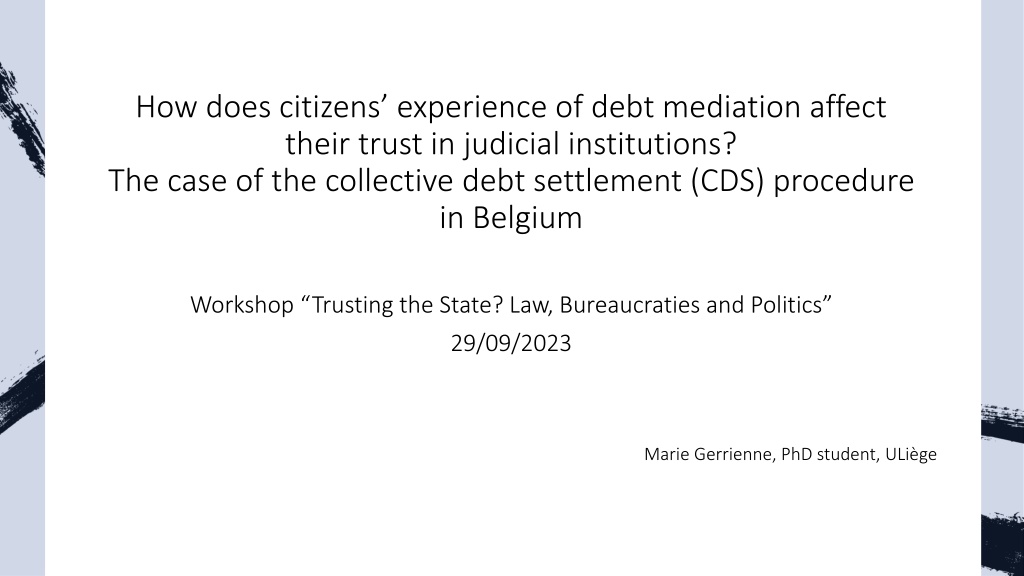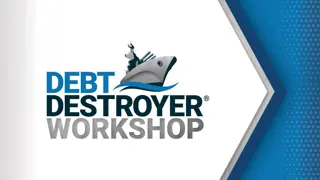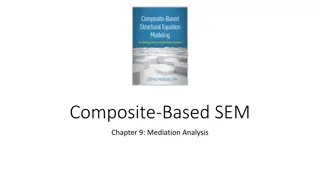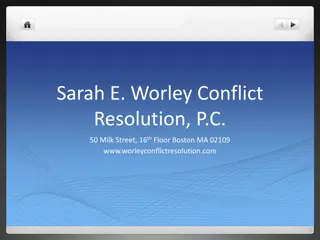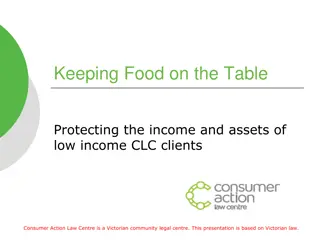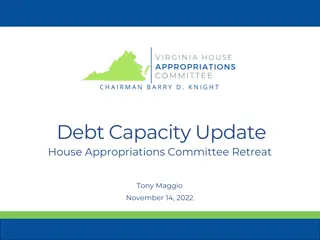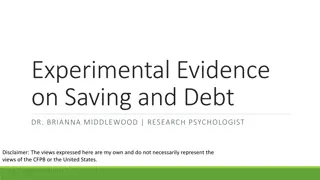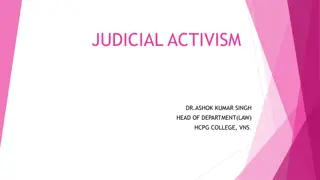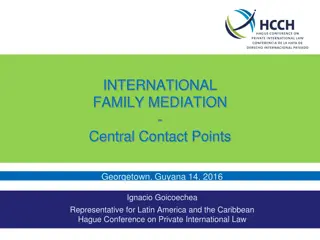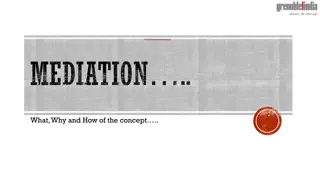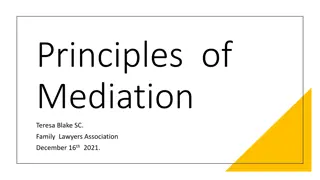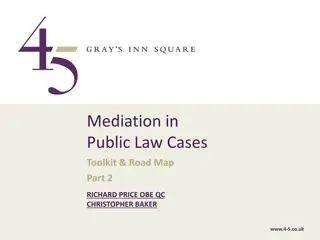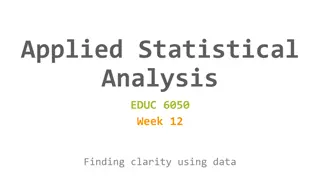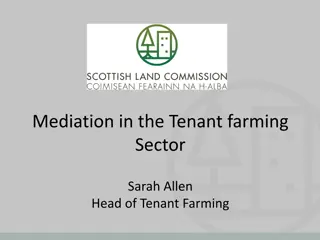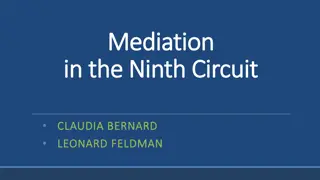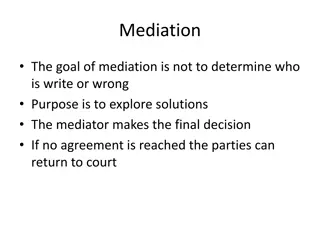Trust in Judicial Institutions: Impact of Debt Mediation Experience
Explore how citizens' experiences of debt mediation, specifically the Collective Debt Settlement procedure in Belgium, influence their trust in judicial institutions. The study delves into defining trust, the CDS procedure, research questions regarding interactions with professionals, stigmatization, and trust in the justice system for over-indebted citizens.
Download Presentation

Please find below an Image/Link to download the presentation.
The content on the website is provided AS IS for your information and personal use only. It may not be sold, licensed, or shared on other websites without obtaining consent from the author. Download presentation by click this link. If you encounter any issues during the download, it is possible that the publisher has removed the file from their server.
E N D
Presentation Transcript
How does citizens experience of debt mediation affect their trust in judicial institutions? The case of the collective debt settlement (CDS) procedure in Belgium Workshop Trusting the State? Law, Bureaucraties and Politics 29/09/2023 Marie Gerrienne, PhD student, ULi ge
Outline of the presentation 1. Introduction 2. The procedure of collective debt settlement (CDS) 3. Research questions 4. Methodology 5. Findings 5.1. Defining trust 5.2. Trusting CDS professionals 5.3. Trusting a stigmatizing procedure 5.4. Trusting the justice system? 6. Conclusion
Over-indebtedness = inability of an individual to meet their debts Public problem => inscription in the law Research in France (Plot, 2013) => over-indebtedness procedures as a way of imposing dominant economic behaviour => Belgian case from the perspective of the beneficiaries of the procedure
How does CDS work? Analysis of the debtor s request and approval (or not) Admissibility Lawyer or social worker Appointment with the debtor and budget definition Designation of a debt mediator and continuation of the procedure Approval of the plan
Debt mediators role: managing the budget Debtor s income Repayment of creditors Mediator s fees Left to live
How do debtors talk about their interactions with CDS professionals, e.g. their debt mediator, in the procedure of CDS? How do they trust and place hopes in the procedure considering the stigmatisation they are facing? How does this affect trust in the justice system in general for over-indebted citizens?
17 semi-directive interviews 3 men/14 women Social media
5.1. Defining trust Garfinkel (cited in Qu r , 2001): Trust = fulfillment of expectations = normal, ordinary Mistrust = ignorance of common sense Negative definition of trust
5.2. Trusting CDS professionals Social workers : Non-judgment Empathic attitudes Transparent discourses
M: So, you think she inspired trust in you? I: Yes. She was fair. She said how things were going, she didn t lie, she really explained how things were going to work and that was that. She didn t try to embellish things; she really told it like it was. Debtor in CDS (F), 25thMay 2023
[...] were all social workers except for one colleague whos a legal assistant, and we ve all done the compulsory debt mediation training, which is really the first step towards being able to work in this field, and so our main objective is to establish a relationship of trust with the debtor [...] Social worker (F) in a PSWC in the region of Li ge, 2nd December 2021
Lawyer debt mediators : the most important relationship I d say the most important thing is contact with the mediator, that s the most important thing for a mediated person, that there s good communication [...]. Debtor in CDS (M), interviewed on 10thJune 2023
Elements of non-mistrust : Availability and response time Regularity of payments Consideration and non-judgment Egality in front of the law
And from the mediator, the way she sometimes talks to me or whatever, I have the impression that for her, I m a looser who s over-indebted because she s done everything and anything, and who tries not to pay her bills and deny the thing [...]. Sometimes I feel a bit like I m being misunderstood in that sense. Debtor in CDS (F), 22ndMay 2023
So Im going to say, its regulated, he cant do what he wants. We can t do what we want, but neither can he. Debtors in CDS (F), 19thMay 2023
5.3. Trusting a stigmatizing procedure Budget management, justifications 3 elements: Protective dimension Moral dimension Comparative dimension
[...] I learned to work on myself and to tell myself yes, you did stupid things, yes you pay them, but precisely you pay them, you are punished for what you did, and you take your punishment and you do it. And again, it s like a prisoner serving his sentence. For me it s financial, but here I am, I m serving my financial pain and so in the end, I m proud because I held on [...]. Debtor in CDS (F), 19thMay 2023
I must say that when I read about the collective debt settlement group, sometimes I say to myself that I am very lucky to have a lawyer mediator like that. Debtor in CDS (F), 17thMay 2023
5.4. Trusting the justice system? Irrelevance of the link between trust in the procedure and trust in the justice system as a whole Distinction with the criminal world Importance of the debt mediator s figure
[...] I dont think debt mediation has anything to do with the courts. Whether you trust the law or not. It s the relationship you have with your mediator that s more important. Debtor in CDS (M), 10thJune 2023
In more private areas like that, I will say financial, divorce, recognition, debt, I trust the justice system. But I have acquaintances around me where it is more towards the prison environment and sentences, and there I do not particularly agree with justice. Debtor in CDS (F), 19thMay 2023
M: And you consider that you trust the justice system? I: Yes, I think we can trust. M: Despite your experience with the mediator which is not always easy. I: Yes, but hey, it s different, it s not because it went badly with her that with someone else it would automatically go badly. M: You consider it to be really related to her personally rather than to the system. I: Yes, it s not the system, it s the person herself, let s say. We are not going to put everyone in the same basket, as they say. Debtor in CDS (F), 7thJune 2023
It seems that people in CDS do not extend their satisfactions or critics in the procedure to the whole system Several elements can erode trust in CDS professionals: unavailability, feeling of being judged, etc. If we look at the procedure as a set of rules => constraints as a price to pay
